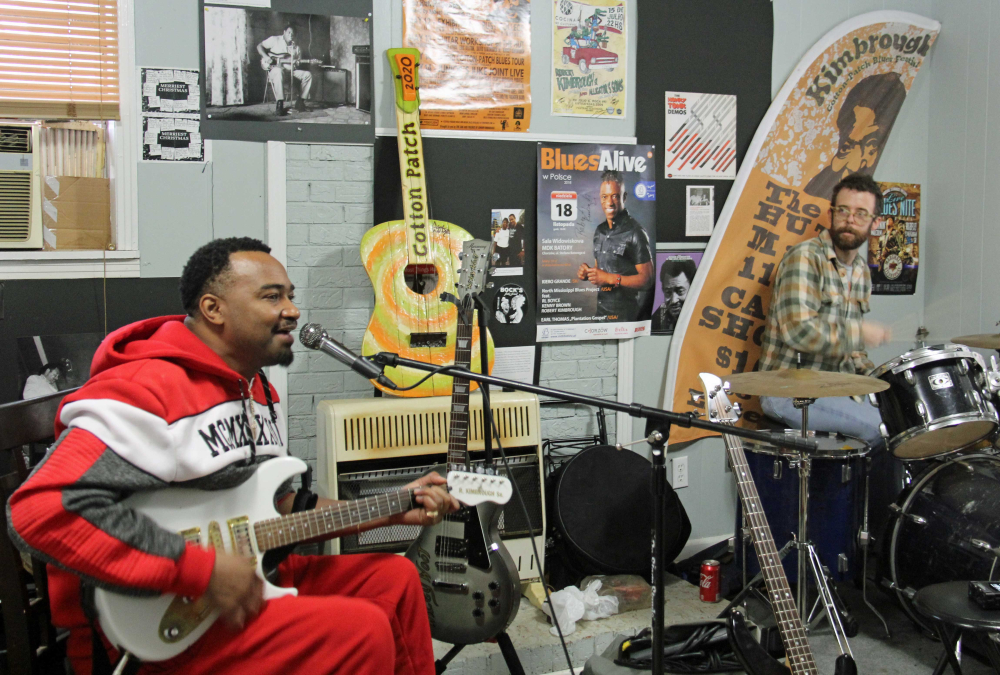Robert Kimbrough, Sr. and Benjamin DuPriest participated in the Mississippi Arts Commission’s 2019-2020 Folk Arts Apprenticeship Program. This grants program supports the survival and continued evolution of community-based traditional art forms. During the apprenticeship, the master artist teaches specific skills, techniques and cultural knowledge to the apprentice, who is an emerging artist of the same tradition. Participants are awarded $2,000 to assist with the teaching fees for the master artist and other expenses such as travel costs and supplies. To learn more about the program, click here.
Introduction
Benjamin DuPriest had a longtime interest in learning about and playing the blues before meeting master blues percussionist, Robert Kimbrough, Sr. The two played together in several “jam sessions” at Robert’s first annual Cotton Patch Soul Blues Festival in 2017. Since then, Ben played with Robert frequently and wanted to gain a deeper understanding of the legacy of the Kimbrough family’s Cotton Patch Soul Blues through the apprenticeship.
Master Artist: Robert Kimbrough, Sr.
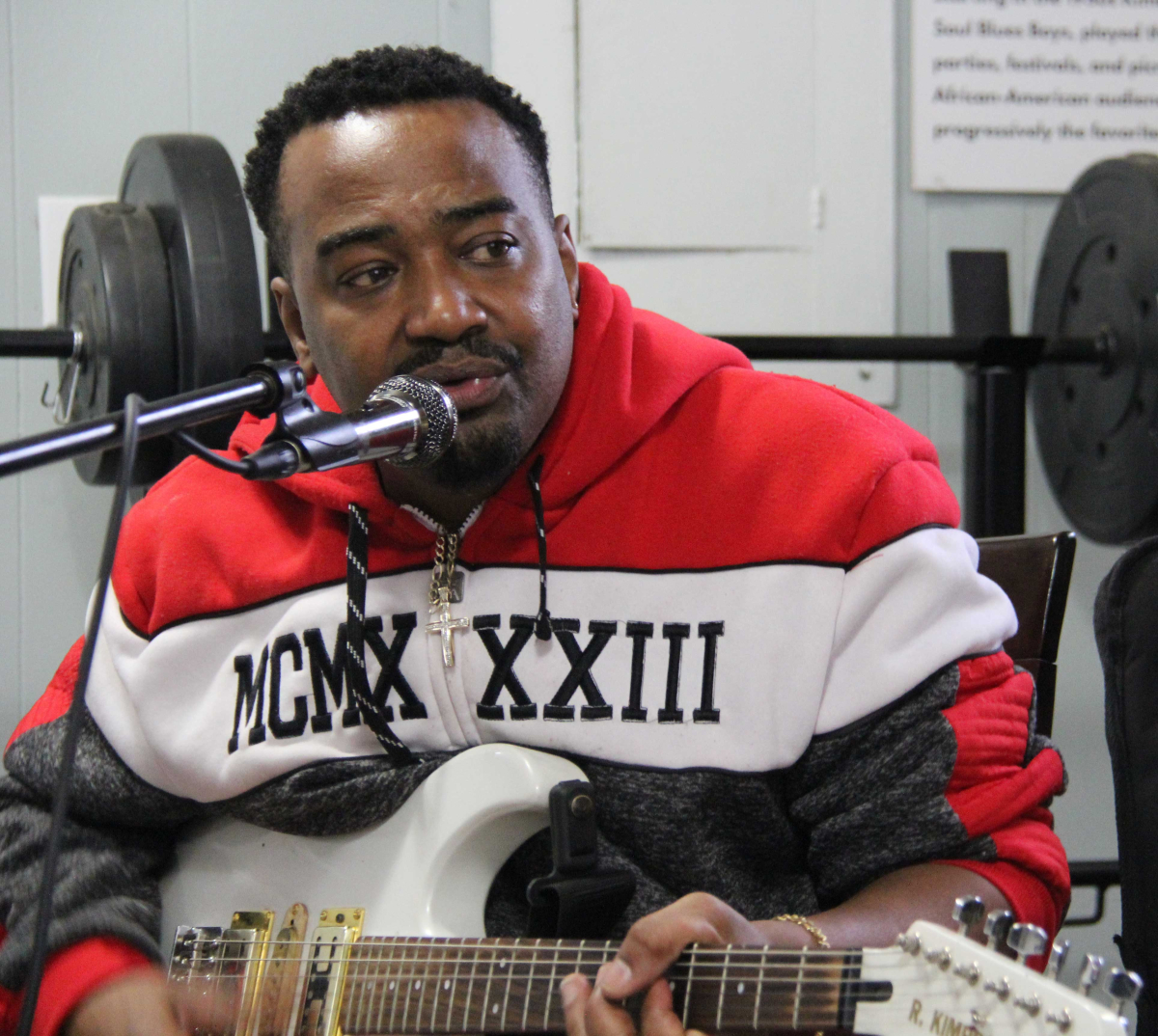
For Robert, the blues is not just about learning the songs, but about learning the lifestyle, and gaining the experience to play in different atmospheres to different audiences.
Robert Kimbrough, Sr. has been a musician all his life. Son of Junior Kimbrough, the creator of Cotton Patch Soul Blues, Robert learned to play the drums and has spent his life carrying on his father’s musical tradition.
“You know, coming up in the household with my mom and father, it was mostly me, David, and Kenny (siblings). We grew up playing music, busting drums and breaking strings, like that. Until we finally caught a hold and began to kind of play music. And that was our life.”
In describing his family’s music, Robert says, “The beat of our music, Cotton Patch Soul Blues, is distinct, where the accent is on the ‘5’. The drums lay a foundation accompanied by a hypnotic repetitive single guitar chord creating a trance inducing effect.” Robert appreciates his apprentice Benjamin DuPriest’s aptitude and enthusiasm for this specific style.
Apprentice: Benjamin DuPriest
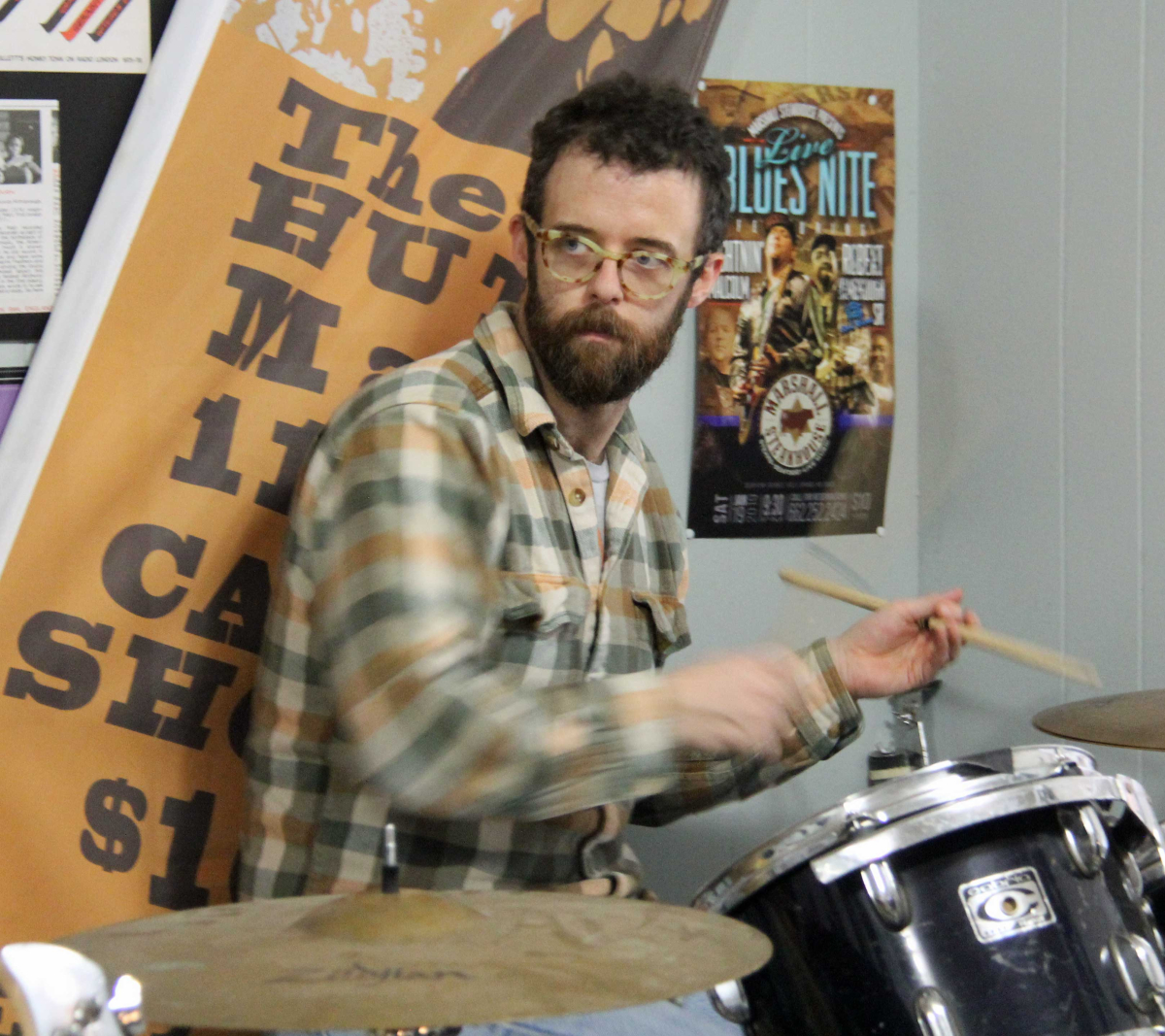
Originally from Atlanta, Georgia, Benjamin DuPriest and master musician Robert Kimbrough Sr became friends at the annual Cotton Patch Soul Blues Festival in Holly Springs, which Robert runs. The festival spans a weekend and includes jam sessions, workshops, exhibitions and tours highlighting the history of the Kimbrough family. Benjamin is completing his PhD at the University of Pennsylvania, and his dissertation focuses on blues festivals around North Mississippi.
“I had already begun to learn how to play the music at that point, but I was really hoping to get a better idea of how the Kimbrough family understood the music and what their relationship with it was,” explains Benjamin. “Robert’s music is much different from his father’s, but there is obviously an incredibly strong connection between the two. I wanted to understand that connection better, and to understand how the Cotton Patch Soul Blues sound had developed over the course of a generation.”
Apprenticeship Experience
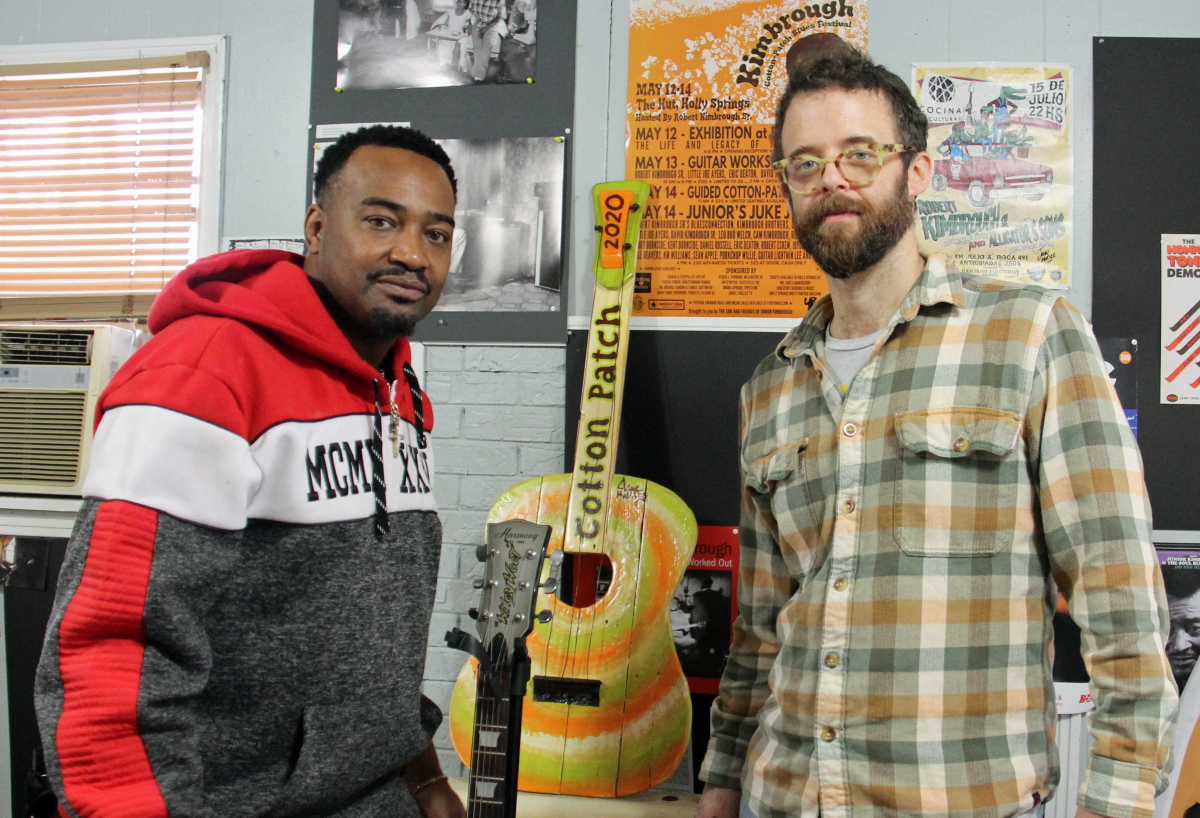
A big part of the apprenticeship was learning about the history of Cotton Patch Soul Blues, and the legacy that Junior Kimbrough created.
During their apprenticeship, Robert taught Benjamin specific songs, and he even brought Benjamin to play at live shows with him. For Robert, the blues is not just about learning the songs, but about learning the lifestyle, and gaining the experience to play in different atmospheres to different audiences. He explains:
“Blues is a language where ideas are discussed and expressed without any fear to a receptive audience. Cotton Patch Soul Blues is a feeling, a lifestyle and a skill. I will have a new group of players for Benjamin to sit in with. It is important for Cotton Patch Soul Blues players to be able to fit right in anywhere they go. The style is distinct.”
A big part of the apprenticeship was learning about the history of Cotton Patch Soul Blues, and the legacy that Junior Kimbrough created. Benjamin and Robert would talk about the music while playing it. Robert would often demonstrate the history with the songs that he was teaching to his apprentice, so that Benjamin had a full understanding of the structure of the music as well as its lineage. Benjamin explains more about the structure of the apprenticeship:
“We met sporadically throughout most of January [2020]. I’d say there were 4 or 5 ‘lesson’ meetings and we also played some gigs around that time, with follow up conversations about the performances. When we met at Robert’s house for official lessons most of our time was spent learning his and his father’s music and discussing the style of drumming required on the songs. We would talk about his dad’s music and him and his brother’s interpretation of the Cotton Patch Soul Blues sound. As a musician, the most rewarding aspect was certainly the experience of really digging deep into this style of music. Robert has such well formed ideas about their family’s sound and it was really a privilege to be able to have such intimate conversations with him about that.”
Blues is a language where ideas are discussed and expressed without any fear to a receptive audience.

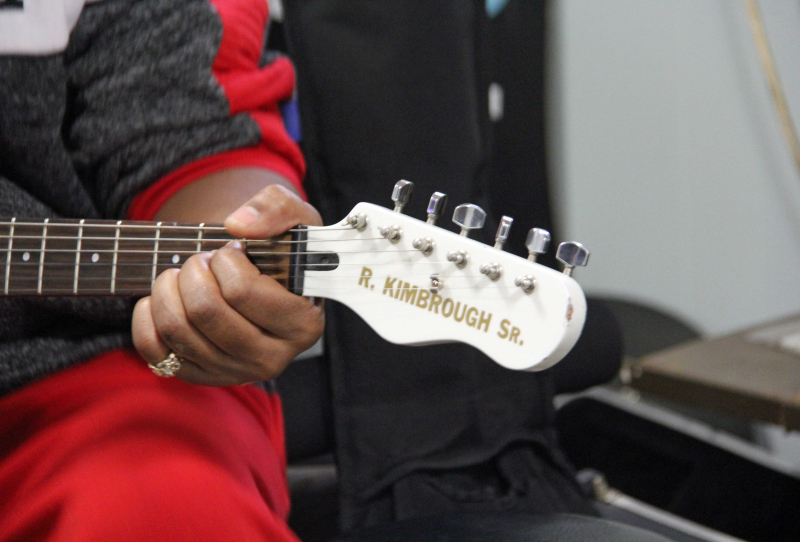
Conclusion
Three of the Kimbrough brothers have continued to carry on their father’s style of music. Robert’s late brother, David, did and Robert and Kenny continue to do so. Robert describes his relationship to the music: “Cotton Patch Soul Blues boy for life, that’s what I am. But I add flavor to it. Spice it up a little bit.” Robert believes that Benjamin will also carry on the tradition, as he explains:
“What Ben does is keep it solid. I can tell you that. He’ll add what I’m looking for once I teach him. He knows my style; he knows our style. So he knows when he gets on those drums what style to play with me.”
Although Benjamin is occupied with his PhD program and his young child, they both look forward to playing together again after the pandemic or as soon as it is safe for live performances to resume.

